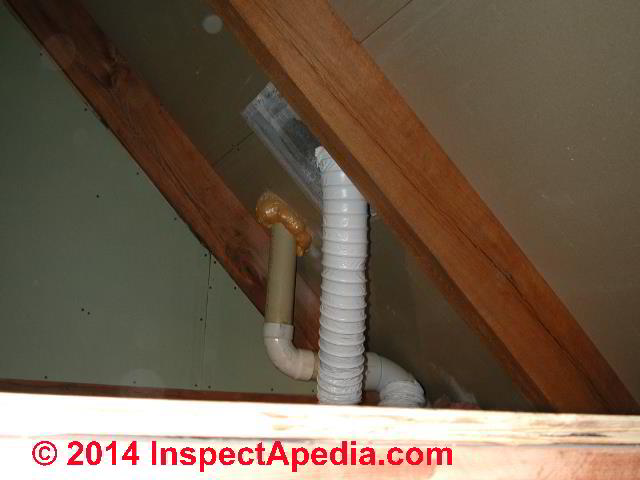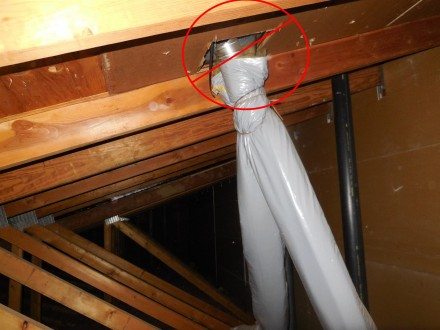Venting Bathroom Fan Through Existing Roof Vent

Center the nail between two rafters.
Venting bathroom fan through existing roof vent. Second during cold winters you ll be blowing warm moist air onto a cold surface the roof vent and roof plywood. Sometimes this is preferable to do so that the roof doesn t need to be disturbed and then at a later date when replacing the roof a proper vent is added. Ideally your fan should be near the tub or shower but not right next to an air conditioning heating vent as the forced air can create currents that disrupt the bathroom fan s steady intake of. Required bathroom vent fan ventilation rate in cfm.
Smells are merely an annoyance. When venting a bathroom exhaust fan make sure to vent the air to the outside rather than into your attic where it can cause mold and mildew to form. This ventilation code specifies a bathroom exhaust airflow rate for toilet rooms and bathrooms not served by a window of adequate size of. Options for venting a bathroom exhaust fan include best to worst.
Bathrooms are wet smelly places that often are closed in and unventilated. In this video this old house general contractor tom silva shows how to properly install a roof mounted bath fan vent. If you re tempted to vent your exhaust fan through an existing roof vent or even vent it into the attic don t do it. In order to accomplish this the roof has to have a hole cut in it.
Venting two bathroom exhaust fans through one roof duct won t work sorry to say. By the diy experts of the family handyman magazine one fan two vents. Bathroom exhaust fans perform an important function by removing excess moisture from your home. Moisture though is the real problem since it can create potentially hazardous mold and mildew eating away at your walls ceiling and trim.
25 or 50 cfm ft for hotels motels resorts and dormitories and a slightly more modest 20 50 cfm for private dwellings. But you can install one fan in your attic for both bathrooms and make your bathroom quieter too. This involves running ductwork from the fan usually though an attic and out through the roof. From the roof find the nail and use the utility knife to cut roof shingles from around the nail.
From inside the attic drive a nail through the roof directly above the bathroom vent fan. However it is possible to use the existing roof vent often the duct is secured to one side of the roof vent so that it can still be used for attic ventilation.














































